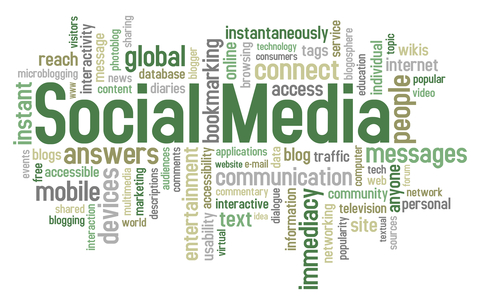The social media universe has developed into a world with it’s own ways of interacting. Stumbling around this brave new world is exciting, but it can also lead to some embarrassing moments. Today I’ll share some tips to help you acclimate to this new online society.
When to LIKE , COMMENT or SHARE on Facebook: When you read a post on Facebook you have three options if you want to interact.
The First is to LIKE the post. When you click on LIKE, Facebook will register your user name and the fact you liked it. This carries more weight with the Facebook Edgerank Algorithm than just viewing the post, but not as much as commenting.
The second option is to COMMENT. This carries the most weight with Facebook and will give you the most engagement with others seeing the post. BUT, and this is an important consideration, it will also include you in all subsequent conversations. This means that if you get email notifications on Facebook, everytime someone else comments on this post, you’ll get an email about it. If it’s a popular post, that can mean twenty or more emails in your inbox. So think carefully before you comment.
NOTE: You can opt out of a conversation (what Facebook calls post interaction). But if you choose to do that, everyone in the conversation will be notified that you opted out.
The final option is to SHARE a post on Facebook. This takes a copy of the post and pastes it on your page. When Facebook pastes the post, it gives you the option of deleting the name of the person you got the post from. Doing so is bad form. Not quite as bad as plagiarism, but it is in the neighborhood.
- So LIKE a post, when you want to let people know you agree or enjoyed it.
- COMMENT if you don’t mind becoming part of the ongoing conversation.
- SHARE a post, always giving credit to the original poster.
When to FILTER a post or just UNFRIEND the person:
FILTERING or HIDING a post or user can keep that person’s updates from showing up on your timeline. This is a good option if you don’t want to offend someone.
UNFRIENDING someone basically says you don’t want to have any interaction with that person. Depending on how many friends you have, this may be noticeable, especially if you interact regularly at work or socially.
- So FILTER someone who’s annoying.
- UNFRIEND someone you don’t mind alienating.
When to RETWEET and when to REPLY: There are two ways to answer someone on Twitter, RETWEET and RELY. And there are specific times to use each one.
A RETWEET, is a repeat of the tweet sent. This is used when you want to share a tweet with your followers. For instance, if I saw a tweet about how to avoid getting embarrassed on Twitter, I’d retweet it to my followers so they could learn too. I also use it to share good news about others.
A REPLY, is an answer to a tweet that’s been sent. This is used if someone asks you a question on Twitter. It’s also used when someone else mentions you on Twitter. It’s a way of saying thank you. It’s considered a very bad instance of bragging to retweet a mention of yourself. For instance if someone tweeted about this post, I’d REPLY and say thank you.
- So RETWEET if you see an update you want to pass on to your followers.
- REPLY when someone mentions you or asks a question.
Social Media in General
When is it acceptable to HOG THE STREAM? The short answer is …NEVER! Hogging or Spamming the stream, means posting several social media updates in a row. This can be on Twitter, Facebook, Google+, etc. You can do this inadvertently by engaging the AUTOMATIC updates available on some ancillary programs like Tweetdeck, Hootsuite or Buffer.
This option of automatic updates claims to identify when the largest amount of your followers are engaging on social media and update at that time. Unfortunately this can often result in multiple updates sent one right after another. This can leave you labeled as an irritation or even banned from certain networks. I recommend you avoid any automatic scheduling options to avoid this.
So schedule the times when you send out your social media updates and don’t post them one after another. Spread them out.
- First, so you don’t irritate anyone by Hogging the Stream.
- Second, so you reach people who are on at different times of the day.
These are just a few of the worst blunders for social media. I’d like to know what social media faux pas you’ve seen and which ones irritate you the most.

Comments 1
I find I get a little annoyed at people who only “like” on Facebook and never leave a comment. It’s as if they just go down the line and like everything. I have tried to keep a balance of liking and commenting. And now I’m getting into the sharing thing….that’s fun.
Thanks so much
Jan Cline